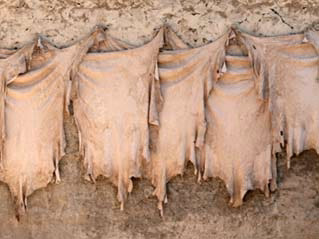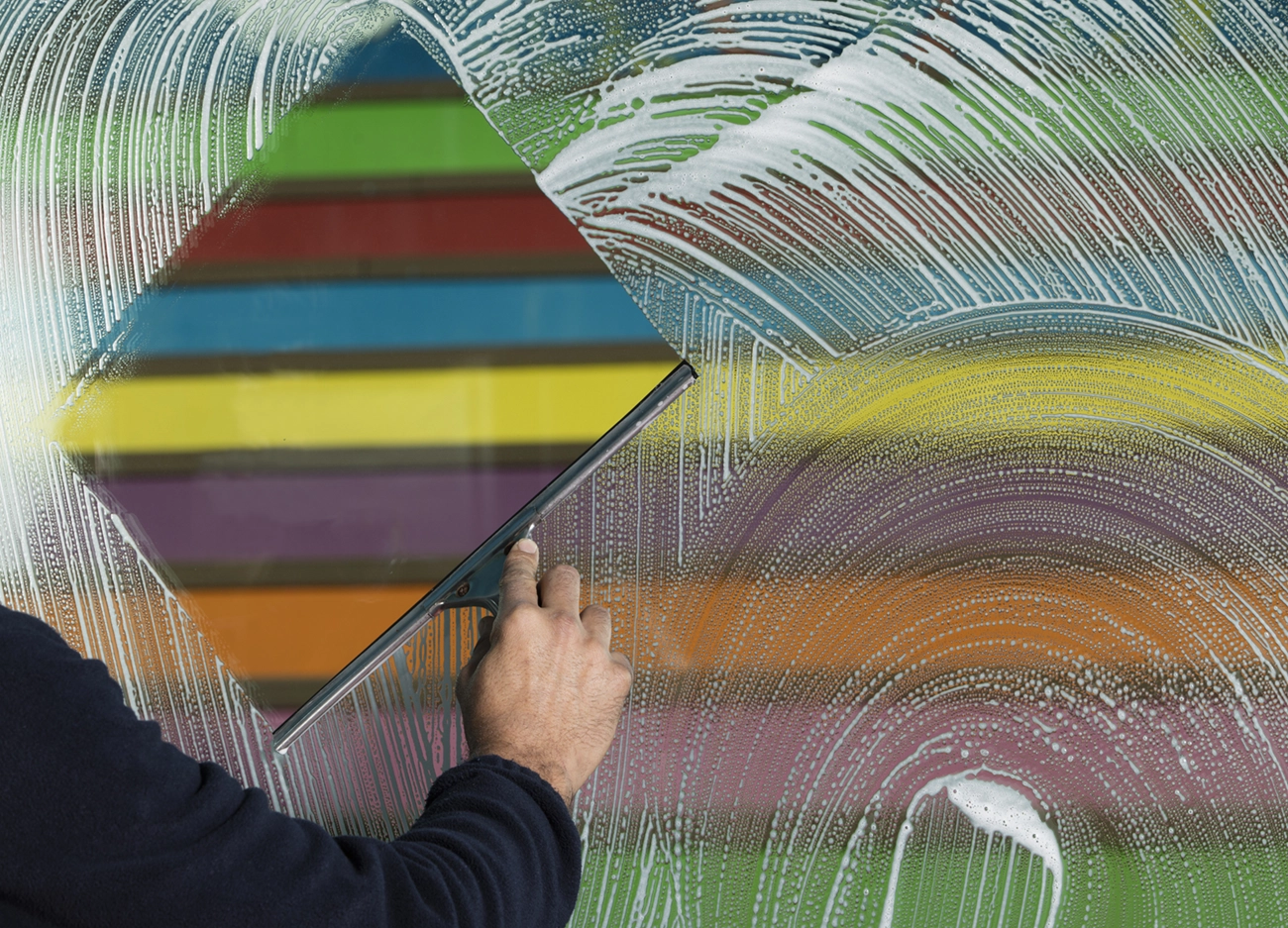Once upon a time, window cleaning was a tale of simple squeegees and sheer elbow grease. But as in every great story, evolution is inevitable. Today, we stand at the pinnacle of this evolution, where innovative tools like water-fed poles and pure water systems have transformed the window cleaning landscape. In this historical journey, we’ll explore how traditional window cleaning methods have evolved into the sophisticated techniques of today, with Ionic Systems leading the charge.
Chamois leather, made from the skin of the chamois mountain goat or from sheepskin, was initially used for cleaning and polishing due to its absorbent and non-abrasive qualities. It was in the early 20th century that window cleaners began adopting chamois as their go-to tool. Its ability to absorb water without leaving streaks made it an ideal choice for cleaning glass surfaces.

The technique of using chamois for window cleaning was straightforward yet required a skilled hand. Cleaners would first wet the window with water and then use a damp chamois to wipe the surface. The skill lay in wringing out the chamois to just the right level of dampness and then smoothly gliding it across the glass to remove dirt and water without leaving streaks.
The classic image of a window cleaner with a squeegee and a bucket is iconic. For decades, this was the standard toolkit for crystal clear windows. It was all about manual labour, where the skill of the cleaner played a crucial role in the end result. However, this method had its limitations – it was time-consuming, physically demanding, and often less effective at reaching high or awkward windows.
There were other inefficiencies too. Window cleaners using a squeegee and bucket would need to regularly replace the rubber blades, if they wanted to maintain a consistent high standard of clean. Soapy water would inevitably end up on the ground as it is splashed around as the water applicator (or “dobber”) went in and out. Then, when attempting to clean windows out of reach you would need to attach a separate longer pole, or bring out the dreaded ladder!

Enter the era of using ladders to enable cleaning windows at height. This method had many clear advantages. Window cleaners could now clean windows previously inaccessible. Simple. But at what cost? It’s true that more money could be made in the form of offering a greater reach, making your window cleaning services more attractive to businesses and homeowners alike. For a time, this was great for window cleaners, even if the rate of falling from heights accidents did begin to rise.
It wasn’t until the 2005 update of the Health & Safety at Work Act which placed the responsibility onto those that control the work being carried out, “Work at Height Regulations 2005 (as amended) place duties on employers, the self-employed, and any person that controls the work of others (for example facilities managers or building owners who may contract others to work at height).”
Homeowners and building owners/managers alike became more vigilant of work practices with a high potential risk of injury. Being up a ladder at height came under the microscope!
Today, understandably so, modern window cleaners are investing in much safer and more efficient methods of cleaning windows. Pure water filtration systems, telescopic poles and other accessories have enabled the work to be carried out from the safety of the ground.

Today, understandably so, modern window cleaners are investing in much safer and more efficient methods of cleaning windows. Pure water filtration systems, telescopic poles and other accessories have enabled the work to be carried out from the safety of the ground.
The magic of water-fed poles is made possible by the use of pure water systems. Ionic Systems, a pioneer in this field, recognised the potential of using water with a high level of purity, measured in meg ohms. Pure water, free from minerals and contaminants, leaves windows spotless and streak-free without the need for detergents. This not only enhances cleaning quality but drastically decreases the time required to complete the job.
Watch the video below to learn more about the history of cleaning windows with a pure water system and telescopic pole!
Ionic Systems are proud to be a key player in the revolution of safer, more efficient window cleaning across the globe. We have been at the forefront of innovation and customer support since our conception in 1997. Today, we continue to push the boundaries of traditional cleaning methods, always with the safety of the worker at the core of our research & design process.
If you would like to learn more about Ionic Systems, please visit our About Us page or visit our YouTube channel where we regularly post informative/instructional content.
If you would like to learn more about our product range, please visit our systems page. From there, you can fill out the contact forms on any of the product pages to speak to one of our talented Sales Team. You can also fill out the form below with any requests or questions you may have!
Are you interested in our pure water cleaning systems, water fed pole systems or looking to learn more about us or Reach & Wash?

Visit Us.
7-8 Westerngate,
Hillmead Enterprise Park,
Swindon,
SN5 5WN,
UK

Send us a message.
See what else we get up to!